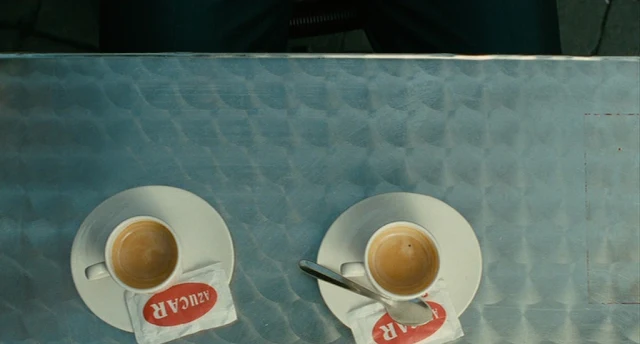Cast: Crispin Glover, Keanu Reeves, Ione Skye, Daniel Roebuck, Dennis Hopper, Joshua John Miller, Roxana Zal, Josh Richman, Phillip Brock, Tom Bower, Constance Forsland, Leo Rossi, Jim Metzler.
Screenplay: Neal Jimenez.
Cinematography: Frederick Elmes.
Production design: John Muto.
Film editing: Howard E. Smith, Sonya Sones.
Music: Jürgen Knieper.
I'm a faithful watcher of credits, even though today they're sometimes as long as the movie itself. I think if those people devoted their time to making the movie, they deserve a little of my time watching their names scroll by. Not really. The actual reason for watching the credits is that sometimes they reveal tidbits of fascinating information, such as this one for
River's Edge: "trainer: Mr. Glover." I have to wonder what Crispin Glover's trainer did: It's not a particularly challenging role physically, so I have to assume it had something to do with keeping the actor from going further over the top than he does in his mannered and eccentric performance as Layne, an adolescent pothead who gets caught up in the aftermath of the murder of a teenage girl.
River's Edge was something of a shocker in its day, variously interpreted as an indictment of American society's failure to provide a clear direction for bored and alienated youth, or as a critique of parenting or the school system, or just as a horror story masked as a true crime movie. The screenplay by Neal Jimenez has its roots in two news stories about teenagers in different parts of California who knew about the murder of one of their schoolmates but covered it up. It's not just the teens who get their share of blame: The adults include negligent parents, a half-crazed loner, an ineffective teacher, bullying cops, and the usual gaggle of reporters. That the half-crazed loner is played by Dennis Hopper links
River's Edge with another and more celebrated movie of 1986: David Lynch's
Blue Velvet. There are moments in Tim Hunter's film, especially when Hopper's character is clinging to his beloved inflatable sex doll, that rival Lynch's. Lynch, however, would probably not have been so tender as Jimenez and Hunter are to the lovers played by Keanu Reeves and Ione Skye, who lend a romantic John Hughes note to the film that dulls its edge.









